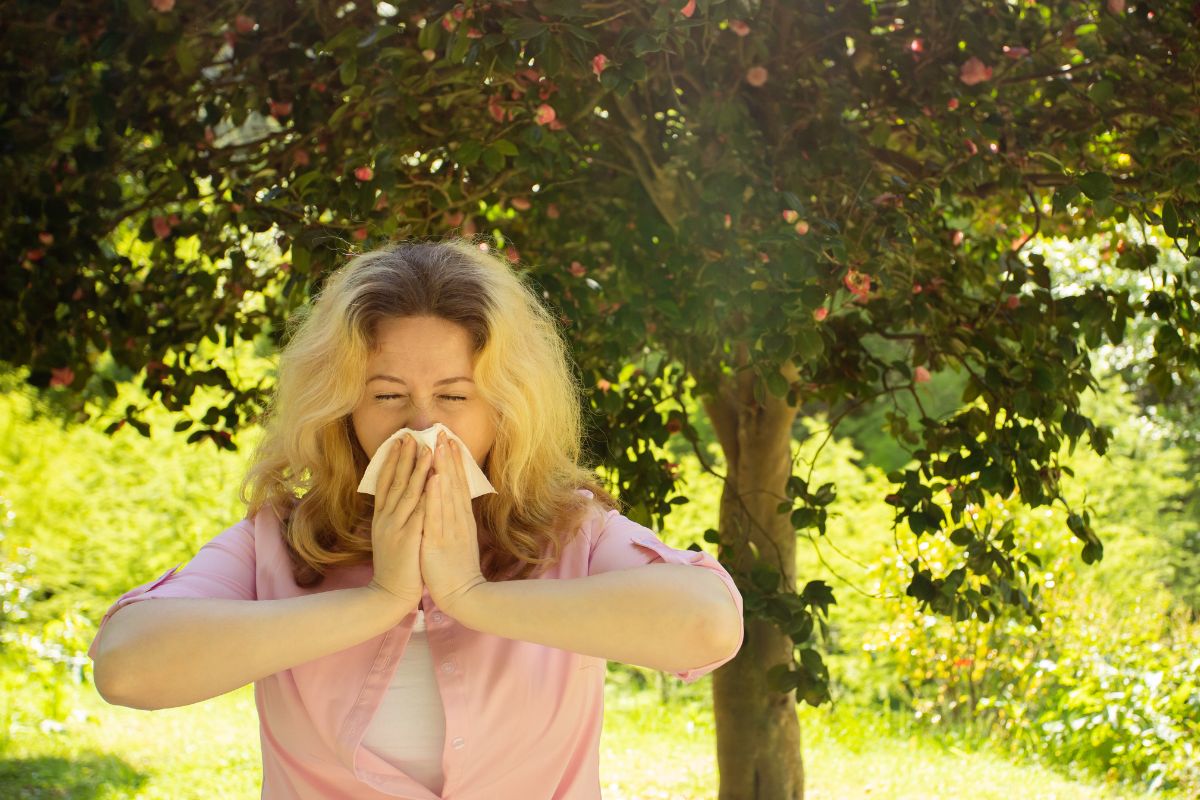Seasonal Allergies Eyes: Causes, Symptoms, and Treatments in 2025
As we journey through 2025, seasonal allergies continue to be a significant concern for millions worldwide. The itchy, watery eyes, persistent sneezing, and unrelenting congestion associated with these allergies can severely disrupt daily life, impacting work productivity, social interactions, and overall well-being. Understanding the root causes, recognizing the telltale symptoms, and exploring effective treatment options are crucial for managing these seasonal irritants and reclaiming a comfortable and productive life. This comprehensive guide will delve deep into the world of seasonal allergies, focusing specifically on their impact on your eyes and offering solutions for long-lasting relief.
The Science Behind Seasonal Allergy Eye Symptoms: A Deeper Dive
Seasonal allergies, also known as allergic rhinitis or hay fever, are triggered by an overreaction of your immune system to airborne allergens. These allergens, commonly pollen from trees, grasses, weeds, and even mold spores, are microscopic particles that float freely in the air we breathe. When these allergens come into contact with the mucous membranes of your eyes, nose, and throat, your body's defense system misinterprets them as harmful invaders, launching a robust immune response. This response involves the release of histamine and other inflammatory chemicals, leading to the cascade of symptoms that characterize seasonal allergies. This inflammatory response is not only irritating, but also causes the noticeable symptoms such as swelling, itching and tearing.
The specific allergens that affect you depend on your geographical location, the time of year, and your individual sensitivities. Tree pollen typically causes allergy symptoms in early spring, followed by grass pollen in late spring and summer, and weed pollen in late summer and fall. Understanding the prevailing allergens in your region can aid in predicting and managing your symptoms more effectively. Monitoring pollen counts, available through weather reports and allergy apps, can help you prepare for peak allergy seasons and adjust your activities accordingly.
Detailed Symptoms of Seasonal Allergies Affecting Your Eyes: Recognizing the Signs
The impact of seasonal allergies on your eyes is often pronounced and can significantly affect your comfort, vision, and overall quality of life. These symptoms can range from mild discomfort to debilitating irritation, making even simple tasks challenging. It's essential to recognize these symptoms early to seek appropriate relief. Look out for:
- Intense Itching: An intense itching sensation in and around your eyes is a hallmark symptom. This incessant itch can be incredibly distracting and difficult to ignore, often leading to constant rubbing, which can further irritate the eyes.
- Excessive Watery Eyes: Your eyes may produce excessive tears in an attempt to flush out the allergens. This constant tearing can lead to blurred vision, making it difficult to perform everyday activities that require clear sight. The constant dripping can also be quite annoying and disruptive.
- Redness and Swelling: The inflammation caused by the allergic reaction can result in redness and swelling of the conjunctiva (the membrane covering the white part of your eye). This redness can be easily noticeable, and the swelling can affect vision as well.
- Burning and Irritation: A burning or stinging sensation in your eyes is common, adding to the overall discomfort. This irritation can make it hard to focus, and even light can be bothersome.
- Sensitivity to Light (Photophobia): Bright light can become intensely bothersome, making it challenging to be outdoors or even in brightly lit spaces. This increased sensitivity to light can affect your ability to be outside during the day, significantly reducing your quality of life.
- Eyelid Swelling: In some cases, the eyelids may become swollen, further adding to the overall irritation and affecting your ability to open your eyes fully. This swelling can also affect your vision, making certain activities nearly impossible.
While these eye-related symptoms are often the most prominent and distressing for many allergy sufferers, seasonal allergies frequently manifest with additional symptoms such as sneezing, runny nose, nasal congestion, and itching in the throat or ears. These symptoms can further compound the discomfort and interfere with daily activities.
Navigating Treatment Options for Seasonal Allergy Eyes: A Multi-Faceted Approach
Effective management of seasonal allergies necessitates a multi-pronged approach that addresses both the immediate symptoms and the underlying causes. Over-the-counter medications, including antihistamine eye drops and nasal sprays, can provide temporary relief from symptoms like itching, redness, and tearing. However, these often only address the surface symptoms, and the underlying inflammation may persist, requiring a more comprehensive treatment plan.
For a more holistic approach and long-term management, consider exploring the following options:
- Allergy Testing: Identifying the specific allergens triggering your reaction is crucial for effective, long-term management. An allergist can conduct skin prick tests or blood tests to pinpoint these allergens. This information allows for targeted treatment and avoidance strategies.
- Immunotherapy (Allergy Shots): This long-term treatment gradually desensitizes your immune system to the specific allergens, reducing your reactivity over time. It’s a more involved process but offers lasting relief for many.
- Lifestyle Adjustments: Simple yet significant changes like staying indoors on high-pollen days, keeping windows closed, and showering and changing clothes after being outdoors can significantly minimize allergen exposure and reduce symptoms.
- Natural Remedies: Some individuals find relief from natural remedies such as neti pots for nasal irrigation (which can indirectly help with eye symptoms) and cool compresses for soothing irritated eyes. These methods can complement other treatments.
- Prescription Medications: In cases of severe allergies, your doctor may prescribe stronger medications, such as corticosteroids or mast cell stabilizers, to control inflammation and reduce symptoms.
Introducing Wise Quest Soothing Eye Patches for Allergy Relief: A Natural Approach
For targeted relief from the discomfort of seasonal allergy eyes, consider incorporating Wise Quest Soothing Eye Patches - 1-Month Care Pack into your daily routine. These innovative patches harness the power of traditional Chinese herbal medicine to gently address the root causes of eye discomfort associated with seasonal allergies.
The Wise Quest Soothing Eye Patches provide soothing relief by promoting healthy blood circulation and reducing inflammation, targeting the underlying causes of eye fatigue, dryness, astringency, redness, and swelling. They offer a gentle and effective way to combat the symptoms of seasonal allergies, helping you regain comfort and clarity without harsh chemicals.
Long-Term Strategies for Managing Seasonal Allergy Eyes
Seasonal allergies can be a significant challenge, but with a proactive and multi-faceted approach, you can effectively manage your symptoms and improve your quality of life. Beyond immediate relief, consider these long-term strategies:
- Regular Eye Care: Maintaining good eye hygiene, such as gentle cleansing and avoiding rubbing your eyes, can help prevent further irritation.
- Consistent Treatment: Don't wait until symptoms become severe to start treatment. Begin using your chosen method early in the allergy season for optimal effect.
- Annual Checkups: Schedule annual checkups with your doctor or allergist to monitor your condition, discuss treatment options, and make adjustments as needed.
- Environmental Awareness: Pay attention to pollen counts and adjust your activities accordingly. Stay informed about the prevailing allergens in your region.
Taking Control of Your Seasonal Allergies: A Holistic Approach
Seasonal allergies don't have to dictate your life. By understanding the causes, recognizing the symptoms, and utilizing a combination of effective treatments and preventative measures, you can take control of your health and alleviate the discomfort caused by seasonal allergies. Remember to consult with a healthcare professional for personalized advice and to address any underlying concerns. With a proactive approach and the right tools, such as the Wise Quest Soothing Eye Patches - 1-Month Care Pack, you can navigate the allergy season with greater comfort and ease.










